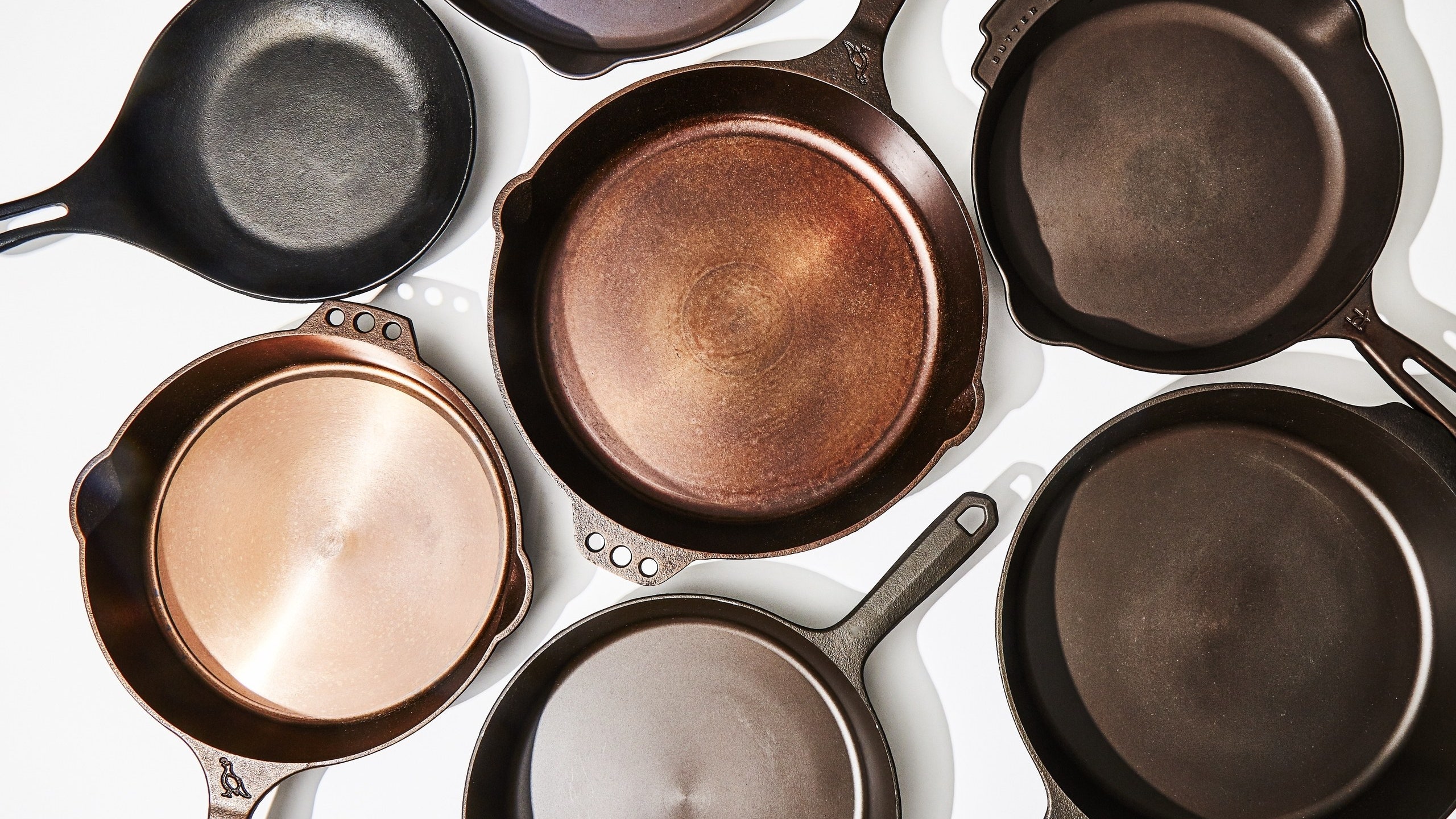When it comes to choosing between a cast iron skillet and a frying pan, kitchen professionals and home chefs often find themselves in a dilemma. Both kitchen tools offer unique benefits, and the decision ultimately depends on various factors such as the type of food being cooked, cooking techniques, and personal preferences.
In this comprehensive guide, we will explore the differences between cast iron skillets and frying pans, their pros and cons, and provide you with all the information you need to make an informed decision.

What is a Cast Iron Skillet?
A cast iron skillet is a heavy-duty cooking pan made from cast iron. It is known for its excellent heat retention and even heat distribution properties. Cast iron skillets are versatile and can be used for various cooking methods, including frying, baking, roasting, and sauting.
Pros of Cast Iron Skillets
- Excellent heat retention
- Even heat distribution
- Durable and long-lasting
- Can be used in the oven
Cons of Cast Iron Skillets
- Heavy and difficult to handle
- Requires regular seasoning
- Can be prone to rust if not properly maintained

What is a Frying Pan?
A frying pan, also known as a skillet, is a shallow cooking pan with a flat bottom and sloped sides. Frying pans are usually made from various materials such as stainless steel, aluminum, or non-stick coatings.
Pros of Frying Pans
- Lightweight and easy to handle
- Quick and even heating
- Easy to clean, especially non-stick pans
Cons of Frying Pans
- Less durable compared to cast iron
- Non-stick coatings can wear off over time
- Not suitable for high-temperature cooking

Comparison: Cast Iron Skillet vs Frying Pan
1. Heat Retention
Cast iron skillets excel in heat retention, making them ideal for searing meats and maintaining steady cooking temperatures. Frying pans heat up quickly but may not retain heat as well as cast iron.
2. Cooking Versatility
Cast iron skillets are incredibly versatile and can be used for a wide range of cooking methods, including frying, baking, and even grilling. Frying pans are primarily used for frying and sauting but may not handle other cooking methods as effectively.
3. Maintenance
Maintaining a cast iron skillet requires regular seasoning to prevent rust and ensure a non-stick surface. For more information, you can refer to this guide on cleaning cast iron. Frying pans, especially those with non-stick coatings, are easier to clean and maintain.
4. Durability
Cast iron skillets are known for their tremendous durability. They can last a lifetime if properly cared for. Frying pans, especially those with non-stick coatings, may have a shorter lifespan and need to be replaced more frequently.
5. Weight
One of the main drawbacks of cast iron skillets is their weight. They are considerably heavier than frying pans, which can make them difficult to handle, especially for tasks like flipping food. Frying pans are lightweight and more convenient to use for everyday cooking.
The Verdict
In the end, the choice between a cast iron skillet and a frying pan boils down to your cooking needs and preferences. If you value durability, heat retention, and versatility, a cast iron skillet is a terrific choice. However, if you prefer lightweight and easy-to-clean cookware, a frying pan might be more suitable.
Frequently Asked Questions
Is cast iron skillet better than a frying pan?
It depends on your cooking needs. Cast iron skillets offer better heat retention and durability, while frying pans are more lightweight and easier to handle.
Can I use a cast iron skillet for frying?
Yes, you can use a cast iron skillet for frying, as well as other cooking methods like baking and roasting.
How do I maintain my cast iron skillet?
Regular seasoning and proper cleaning are essential for maintaining a cast iron skillet. Learn more about how to season your cast iron skillet here.
Can I use a frying pan in the oven?
It depends on the material of the frying pan. Some frying pans are oven-safe, while others with non-stick coatings or plastic handles are not suitable for oven use.
Are non-stick frying pans safe?
Non-stick frying pans are generally safe for everyday cooking. However, it is important to avoid using metal utensils to prevent scratching the non-stick coating.
As an Amazon Associate, I earn from qualifying purchases.
